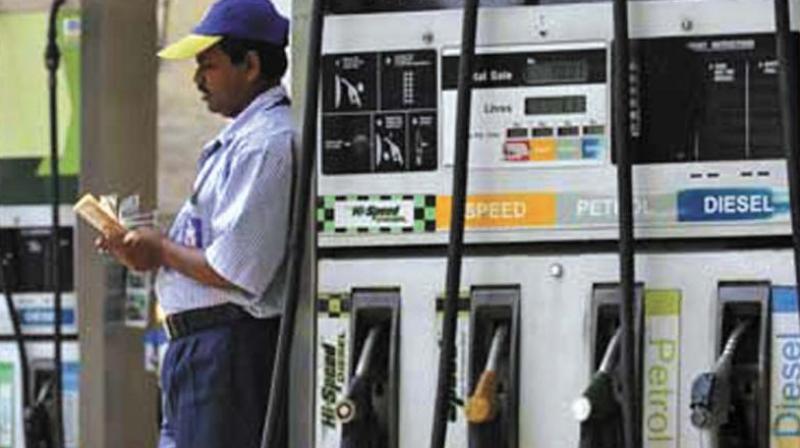New Delhi: India’s petrol sales rose for the first time in the first half of September since lockdown in late March. It indicated that the demand may have returned to pre-COVID-19 levels.
Petrol sales between September 1 and 15 rose 2.2 per cent year-on-year and were up seven per cent over the previous month, according to preliminary industry data.
Diesel sales continue to be in negative territory, with demand falling six per cent year-on-year. But the demand was 19.3 per cent higher over August 2020.
This is the first time that petrol sales in the world’s third-largest oil importer have risen since the March 25 nationwide lockdown crippled economic activity and sent demand plummeting.
Petrol sales rose to 9,65,000 tonne during the first half of September as compared to 9,45,000 tonne in the same period a year back and 9,00,000 tonne during August 1-15, 2020.
Demand for diesel, the most consumed fuel in India, fell to 2.13 million tonne from 2.25 million tonne in September 1-15, 2019. Sales were 1.78 million tonne during the first half of August this year.
Industry sources said while the Indian economy has started to pick up with lockdown restrictions being lifted since June, local lockdowns by states have hampered the demand quickly picking up.
Petrol sales have picked up as commuters are increasingly preferring to personal transport to public transport. The September rise in petrol is a turnaround from the sharp drop witnessed in August. Diesel and petrol sales have fallen by 21 per cent and 7.4 per cent, respectively in August from a year earlier.
Jet fuel sales at 1,25,000 tonne were down 60 per cent in the first half of September but was 15 per cent higher than 1,03,000 tonne sales in August.
Cooking gas LPG sales were up 12.5 per cent at 1.13 million tonne year-on-year and 13.5 per cent month-on-month.
Car sales rose 14 per cent in August from a year earlier, while two-wheeler sales increased by 3 per cent.
